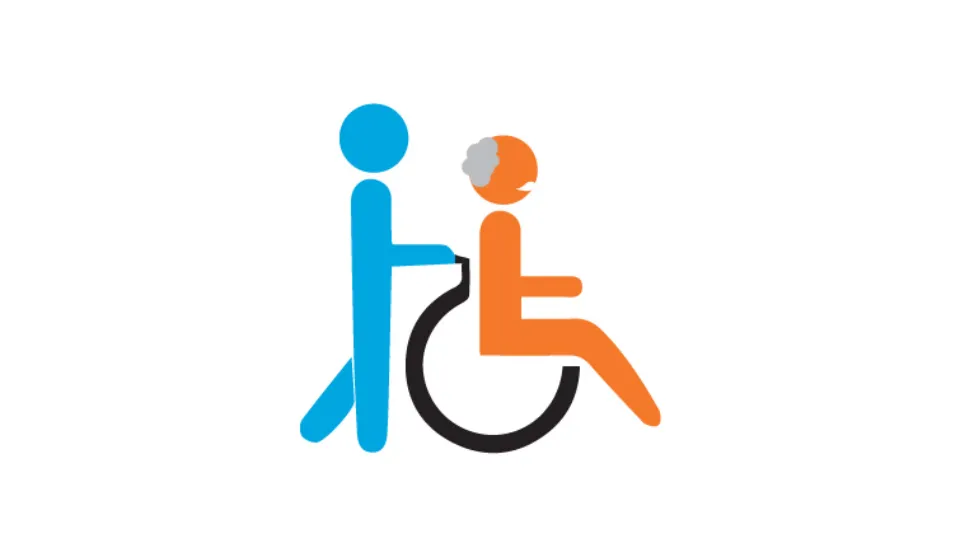For many chronic health conditions that take time to stabilize or recover from, nursing homes and skilled nursing facilities can be a good option. They also offer crucial care for people who require more help than they can get at home, but there may come a time when you need to remove a loved one from one of these facilities. After all, a person’s health status could change, necessitating a change in the type and quantity of care they get.
This post serves as the introduction to our guide to moving your loved one from a skilled nursing facility into their homes (or yours).
You may need the guide: How to Transfer from One Nursing Home to Another? – Elder VIP
Can You Get Someone Out of a Nursing Home?
Most of the time, it will be possible for your elderly parent to leave the nursing home or assisted living, though it’s not something to do on a whim. It’s important to take into account your loved one’s physical and mental health as well as their healthcare support requirements.
Home care, also known as in-home senior care, can facilitate an elderly parent’s return to their own environment by offering necessary services.
Reasons to Get Someone Out of a Nursing Home
Patient removal from a nursing home is an option in a variety of circumstances. A senior patient may, however, choose to leave a nursing home of their own free will. With the exception of patients who are mentally incapable of making the decision and who have no family member designated to do so, the majority of patients typically have the option to leave or relocate from an adult care facility. Other situations that can cause an elderly patient to be removed from a nursing home would be the following:
- The adult care facility wasn’t the best choice for the patient because it wasn’t certified to handle the medical requirements of an elderly patient with a particular set of health conditions.
- A decision to leave the facility is made by the elderly patient. The decision to move or check out of the facility is made by the designated legal advocate, who may be anyone who has been granted power of attorney by the patient or by the court, if the patient is found to have cognitive problems.
- If a nursing home is suspected of abusing or neglecting a patient, the patient is removed, and the authorities are contacted to look into the facility. Other patients may be dealing with similar problems if the facility staff has engaged in elder abuse or neglect.
- An elderly patient may be removed or moved legally by a nursing home facility against their will in certain circumstances, such as when the facility cannot treat the patient effectively or the patient is disruptive.
- An unauthorized removal or transfer of a patient is attempted by the nursing home.
If a forced removal is required, the patient and their advocate should be informed thirty days in advance. The facility must then give justifications for the transfer or removal and inform the patient how to appeal the decision to the nursing home.
How to Get Someone Out of a Nursing Home?
Several factors need to be taken into account before removing your parent or other loved one from a nursing home. You can use the comprehensive checklist that is provided below to make sure seniors are ready to leave the facility.
Medical Checklist
The medical recommendations are the most crucial checklist to adhere to. The purpose of nursing home facilities is to care for elderly people who require specialized medical attention. However, aging in one’s own home may still be the best option. Today’s home healthcare services have made it possible for those elderly patients to age in place.
“Does my parent have the wherewithal to return home?” is the major question. We must stress that there are other factors at play in this situation as well. For guidance on the best course of action, kindly ask the doctor of your parents. Seek the best advice you can find because this is a crucial decision.

Financial Considerations
Let’s face it; paying for a nursing home can be quite expensive. For an elderly person, the national average monthly cost of a nursing home room can be close to $8,000. Expenses similar to these might be incurred when you bring your parents from a facility home.
The good news is that Medicaid funds may still be available to pay the bills after your parent leaves the nursing home. Using Medicaid coverage can therefore be of great help to you, provided that the costs don’t go over the actual nursing home costs. Additionally, you might be able to find county-specific programs in your area to assist you in making the move out of a nursing home.
Prepare for the Discharge
It’s crucial to plan ahead for a smooth transition from institutional care to home care. If you leave the facility suddenly, your likelihood of returning will only increase.
Tell your doctor’s office first and then the staff members of the nursing home when you decide to leave. If you’re still getting physical and occupational therapy, let your therapist know that you’d like to go home. Once you know what you want to achieve, they can help you become more self-sufficient.
Don’t be in a hurry. Decide on a time frame to work toward your goals. It is possible to plan everything to coincide with your release so that you have all of the tools and services required to help you at home. This will make it more likely that your relocation will go smoothly and successfully.

Ensure You Have Caregiver
If your physician issues an order, therapy may come out and assist you in adjusting to your home while you receive rehabilitation. They will do a safety check of your home too. Finally, they can make helpful recommendations for home health care and order the adaptive equipment you’ll need to live independently. These valuable therapies at home are short-term and paid for by Medicare benefits or other health insurance.
In the majority of communities, private home care is accessible. The services offered and the date they end will be outlined in the contract you sign. Most organizations will give you notice before ending your service. When you start to feel better, the company can modify the schedule accordingly. A home care provider can help you regain your strength and independence, so hiring one is frequently a wise financial decision. enabling you to stay in your home as a result.
Everyone has the right to be mobile. Even if you are admitted to a nursing home, that right still exists.
Tips
Simple procedures can make the difference between an easy transition out of their current nursing home and a difficult one right from the start. Consult the tips to maximize your efficiency on moving day:
- Remain aware of medications and required doses, to maintain appropriate care throughout the day;
- Coordinate with your transportation provider to ensure on-time arrival and departure for the resident and anyone accompanying them;
- Minimize resident stress by accounting for all important possessions on move day;
- Ensure regular meal times for your family member or loved one, despite any scheduling conflicts;
- If applicable, meet with representatives at your loved one’s new nursing home to familiarize yourself with the setting, explain any resident-specific issues, and establish points of contact.
Final Thoughts
Choosing the person’s new residence and the services they will require are the first steps in removing someone from a nursing home. Examine their condition, talk to their caregivers, and get in touch with any doctors who might be involved in your loved one’s care. Work with the care facility’s discharge planning division if at all possible. This division is frequently a division of the admissions division, but it may be different.
FAQs
What Does Leaving a Nursing Home AMA Mean?
When a resident signs to leave a nursing home AMA, it means that they are doing so against medical advice. In spite of AMA, the senior resident has the right to depart. However, the facility will inform Adult Protective Services whenever the senior departs.
What Happens When You Leave Nursing Home AMA?
As soon as you leave the nursing home, the first thing you must do is secure a suitable place to live. If you don’t even have a homeless shelter, the nursing home can’t let you go.



